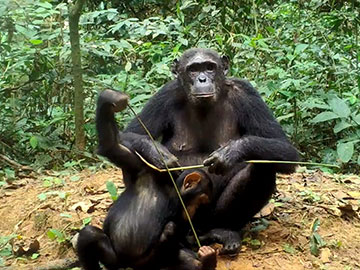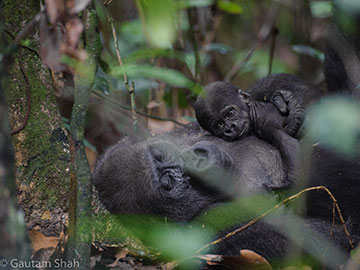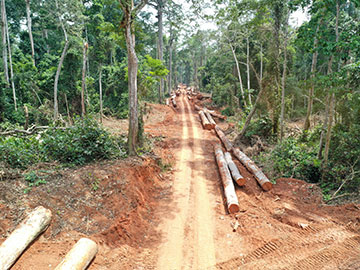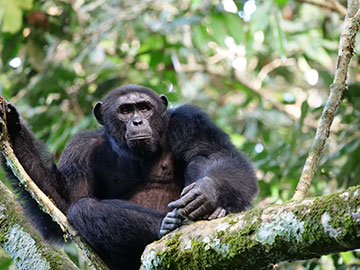



Date & Time
July 24, 2019. 16:30-
Location
B1 Seminar Room, Wildlife Research Center
Talk #1
Lecturer
Dr David Morgan
Washington Unievrsity in St. Louis
Title
Behavioral Ecology and Conservation of Great Apes in the Ndoki Forest
Abstract
Comparisons between wild chimpanzee communities indicate a
high degree of social variation can exist depending on local
environmental circumstances. Comparing social networks in different
settings can aid in elucidating how environmental factors shape
chimpanzee sociality. However, our current understanding of chimpanzee
sociality has largely been based on long-term studies of western and
eastern chimpanzees with little contribution from the central
chimpanzee (Pan troglodytes troglodytes). An objective of the
Goualougo Triangle Ape Project is to develop a comprehensive
understanding of chimpanzee behavioral ecology in the Ndoki Forests of
the Republic of Congo. To better understand the range of social
flexibility in Pan, we have quantified attributes and dimensions of
associations within the social network of the Moto community. We
relate these findings to the ecological and social influences found
within a central African lowland forest. Importantly, this research is
part of a multifaceted monitoring program spanning nearly two decades
which is aimed at documenting the critical attributes of Intact Forest
Landscape (IFL) and threats leading to the decline of identified
environmental values within the Sangha Trinational landscape. Thus, we
also relate our findings to the broader issues of forest certification
and biodiversity conservation in the Congo Basin.
Talk #2
Lecturer
Dr Crickette Sanz
Washington Unievrsity in St. Louis
Title
Chimpanzee Cultures in the Congo Basin
Abstract
Complex technology is a defining feature of modern humans.
The origin of this complex use of tools is not well understood, but is
assumed to have emerged from simple types of tool use akin to those
observed in extant great apes. However, it is still unknown why
hominoids vary in their use of tools. Comparative research on the
ontogeny of tool using skills provides a means to examine the specific
factors shaping such differences. For two decades, we have studied the
technological behavior of chimpanzees in the Republic of Congo to
document not only the diversity and complexity of tool using
behaviors, but also the underlying mechanisms and development of such
skills in natural settings. Western lowland gorillas (Gorilla gorilla
gorilla) reside in sympatry with chimpanzees across this region, but
very rarely use tools. We are currently conducting systematic
comparisons of the behavior and ecology of these overlapping ape
species to better understand what factors elicit tool use, and
contrasting them with the tool-assisted foraging of hunter-gatherers.
Studying the contexts and identifying the evolutionary forces which
maintain differences in the technical skills of humans and wild apes
will aid in understanding the evolution of material culture in the
hominin lineage.
参加者数
約20名